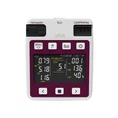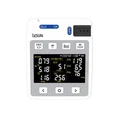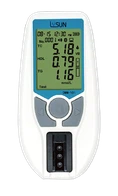|
Product name |
Dengue IgG/IgM Rapid Test Self-Test |
||||||
|
Item type |
DEG-W21-GM |
||||||
|
Specimens |
Whole blood/Plasma/Serum |
||||||
|
Packing Specification |
1 kit/ box, 5 kits / box, 25 kits/ box |
||||||
|
Size |
|
||||||
|
Shelf life |
2 year |
||||||
|
Test Time |
Waiting about 15 minutes |
||||||
|
Certificate |
CE, ISO:13485 |
||||||
|
OEM |
Acceptable |
||||||
|
Service condition |
The kit should be stored at 2-30°C |
Dengue virus belongs to a serotype subgroup of the yellow virus genus in the family Xanthovirus. Its morphology and structure are similar to those of Japanese encephalitis virus, but its volume is small, about 17-25nm. It can be divided into four serotypes based on antigenicity: 1, 2, 3, and 4. Different strains of the same type also have antigenic differences. Among them, type 2 is the most widely spread, with cross antigenicity among different types of viruses, and some antigens are also the same as Japanese encephalitis virus and West Nile virus. The virus can proliferate in mosquito bodies, as well as in primary and passaged cells of Aedes albopictus (C6/36 cells), monkey kidneys, and hamster kidneys, and cause significant cellular damage.
The dengue virus is mainly transmitted through vector insects such as Aedes aegyPti and Aedes albopictus, causing dengue fever, DF) and dengue hemorrhagic fever with high incidence rate and mortality, DHF and dengue shock syndrome, DSS). Patients and latent carriers are the main sources of infection for this disease, while primates in the jungle are animal hosts that maintain the virus's circulation in nature. Inoculating the blood of febrile patients into the brain of immature mice can be separated and fixed.















